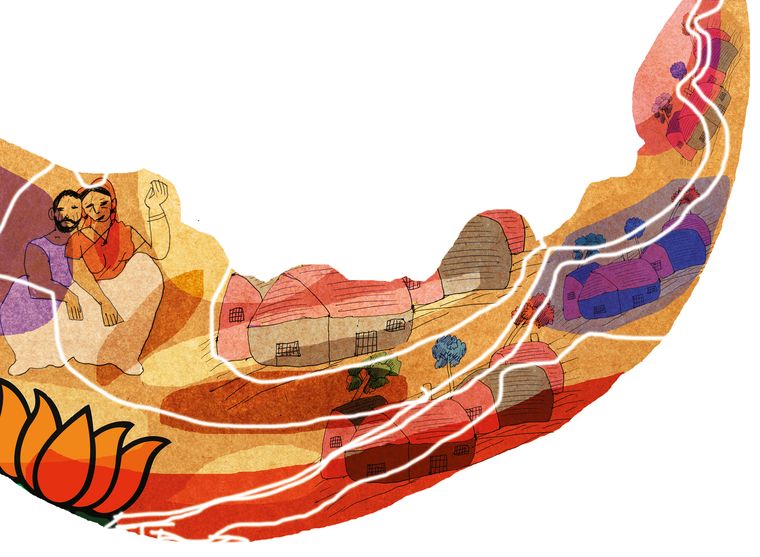Deh siva bar mohe eh-hey subh karman te kabhu na taro…
(Dear God, grant my request, so that I may never deviate from doing good deeds)—is a much celebrated and one of the most revered shabad (hymn) to Guru Gobind Singh, which was quoted by Prime Minister Narendra Modi in his speech on the auspicious day of Guru Nanak Dev Jayanti. The shabad continues to lay down an enlightened path for generations of Sikhs, and, Indians, at large, to never have any apprehension or anxiety from the righteous fight ahead.
The fight ahead is no doubt reforming the agricultural sector, for it has from the time immemorial been the most indispensable and foundational aspect of the Indian society, and, therefore, farmers, the anna-dattas (someone who provides food), are next to God in India. Their resilience in the face of adversities is what has been an impetus to India’s indomitable spirit of breaking out of the shackles of looming miseries, time and again. It was this resilience that the prime minister wanted to bring to the forefront of the economy, from the first day of his pursuit of being in service to the people.
Owing to his extensive personal experience of working and living with farmers, Modi has been able to gather an in-depth understanding of the adversities of the farming community; he had seen their plight first-hand and always had a profound empathy for the community. The endless number of reforms taken up by the government in the agriculture sector in the past 7.5 years is a testimony to that.
The Union government has endeavoured into reforming the agricultural sector, step-by-step, keeping minute needs of farmers in mind. It has ensured the ready availability of credit (Rs2 lakh crore credit boost to 2.5 crore farmers at reduced interest rates via Kisan Credit Cards) and direct benefit transfers (106 lakh farmers in the country have benefited through the direct benefit transfer of Rs6,000 each) to reduce the farmer’s input cost on diesel and electricity. The PM-KUSUM scheme has ensured support to 20 lakh farmers through subsidy for standalone solar pumps.
The government has also worked on making agriculture more sustainable for farmers by improving soil health, by means of soil health cards. Further, thousands of rural markets are being developed and upgraded; rural road connectivity has brought farmers in close proximity to the market at lesser cost and time. Moreover, not only were minimum support prices (MSP) hiked multiple times but procurement at MSP has increased many times more.
It is the synergy of such well-intentioned reforms and the resilience of our farming community that, even during the pandemic, agriculture turned out to be the only sector to have a positive growth of 3.4 per cent in 2020-21. While the Gross Value (GVA) added for the entire economy contracted by 7.2 per cent, growth in GVA for agriculture maintained a positive growth of 3.4 per cent. Furthermore, the budget allocation for agriculture was Rs88,811 crore between 2009 and 2014, which has increased to Rs4,87,238 crore between 2014 and 2020, registering a growth of 438 per cent.
Not backing down from its efforts even after the contentious repeal of the three farm laws, the government is all set to give a fresh impetus to zero budget farming to make agriculture more viable, especially for small farmers, and to save them from getting into the debt trap. It is now for the nation to understand that the repeal of farm laws was not a quinquennial bet, nor was it a matter of victory or defeat. It was certainly not a competition, rather it was a matter of differing opinions but for the same novel vision of reforming the agricultural sector of India.
Farm laws or no farm laws, it was Modi’s very own resilience to work for the advancement of the farming community that continues to remain resolute for making a highly productive agriculture sector of India a profitable one for the farmers of the lowest rungs and strata, and for ensuring that the ones who sow the seeds with their sweat reap its benefit.
Lekhi is member of Parliament • forthwriteml@gmail.com


